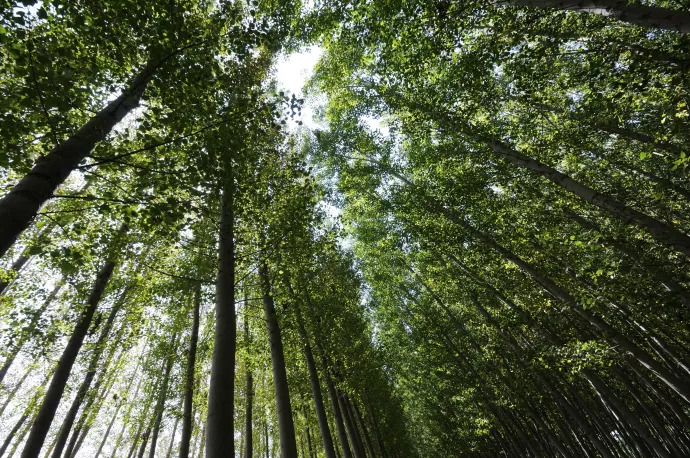UTM biologist on the memory of trees

An elephant might never forget, but can a tree remember? That’s the focus of research by Katharina Braeutigam, an assistant professor of biology at the University of Toronto Mississauga.
As a cell and systems biologist, Braeutigam studies how plants pass genetic information from one generation to the next and how those genes might change. “Genes provide the blueprint for an organism to develop, but epigenetic phenomena play a role by modifying how genes are expressed,” she says. “In development, the genes might respond to internal signals, like hormones, but genetic changes can also occur in response to environmental signals, like drought.”
“Forests, lawns and meadow, organisms are rooted in the ground and are subjected to a variety of environmental stressors,” she says. “I’m curious about how trees interact with the environment—how do they respond to changes in light, or acclimate to changes in moisture or atmosphere?” Evidence suggests that trees may be able to ‘learn,’ at a genetic level, from experience with environmental stressors, then pass that information on to future generations.
“If an organism lives for a long time in the same place, one could speculate that if there is exposure to a severe stress, it would be beneficial for the organism to ‘remember’ in case of similar exposure in the future,” she says. “There is evidence that stress in the environment can induce epigenetic marks which can be transmitted, through cell divisions within the same plant, from one branch to another. However, there are also indications that these marks can be passed on to the next generation. I’m interested in understanding these lasting effects.”
Braeutigam joined UTM in the fall of 2016 and has set up her experimental lab in the new greenhouse where she is raising rows of spindly poplar clones in a climate-controlled environment. Over the next two months, Braeutigam’s trees will be subjected to environmental stressors, including a salt solution and drought conditions. Braeutigam will study the epigenetic marks on DNA samples from the stressed trees, and then repeat the process with subsequent generations, looking for signs that the trees are passing down stress response information buried deep in their molecular memories. “We will be looking for signs that the plants have a memory, how strong the memory is, how are the molecular memory systems set and reset, and do different individual trees of the same variety remember differently?”
“Research shows that cuttings from genetically identical trees that are grown in different climates and locations may behave differently from one another when planted together in the same environment,” she says. “This can have implications for agriculture industries if the parental environment can influence how subsequent generations perform.”
The results will also be useful for the future of our forests. “As we consider climate change, about 30 per cent of land is covered by forests that will experience major environmental stressors, like drought, in the near future. It’s useful to know how trees may react to future climate change and how they will survive, how they may change and how they may pass that survival information on to future generations,” she says. “Epigenetic phenomena may present an opportunity to mitigate these effects and help plants better maintain growth or develop adaptive responses.”
Read more:
-
Innovative drone-based UTM technology remotely assesses health of trees impacted by climate change
- Urban cold islands driving plant evolution in cities
- Secrets of the Permafrost: Climate change in the Yukon
-
How will plants adapt to climate change? UTM researchers lead 'pioneering' international study



